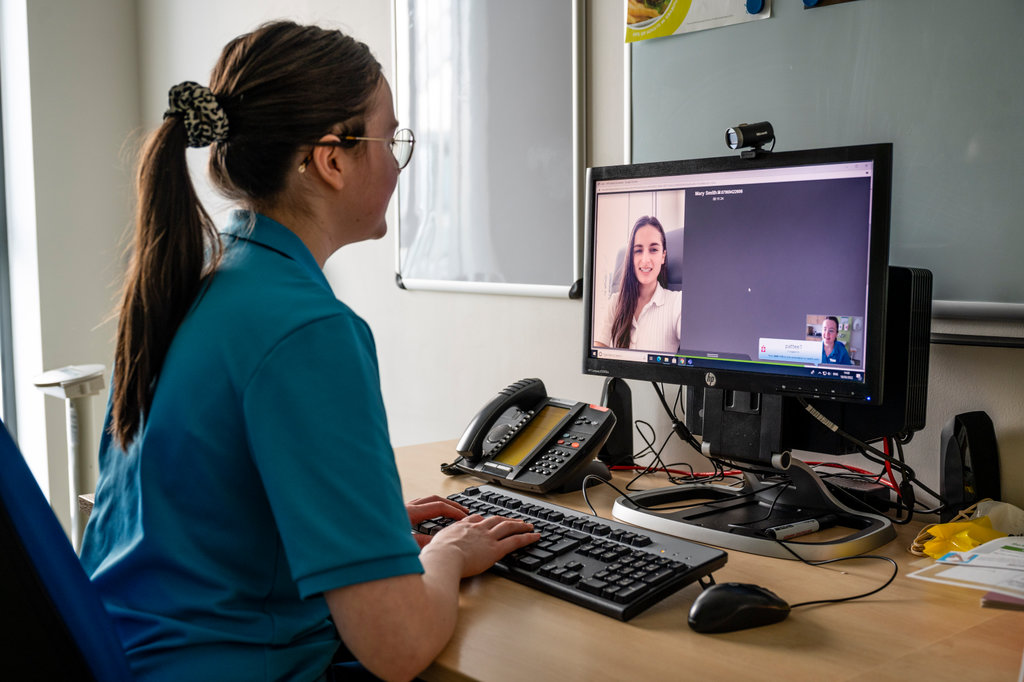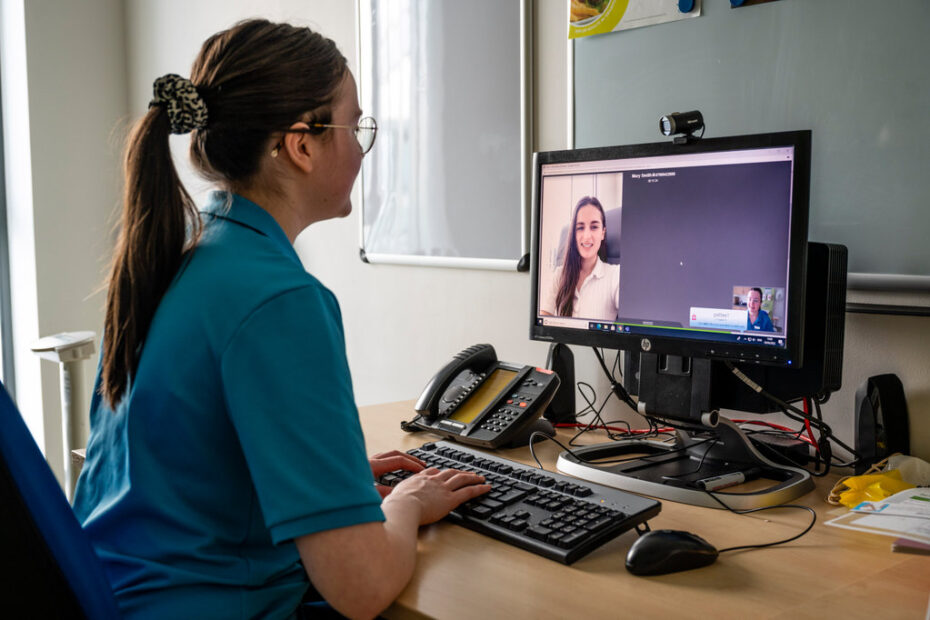
Did you know you can discuss the option of having a virtual appointment with your clinician?
NHS Greater Glasgow and Clyde wants to improve the way patients access services by increasing our use of video and phone consultations where it is clinically appropriate.
Patients are being reminded they can explore this option with their healthcare professional, as we know these types of appointments have many benefits.
They can save people time and money by reducing the need to travel and also allow for greater flexibility, with patients less likely to have to take time away from work, education or other responsibilities to attend hospital unnecessarily.
Virtual consultations can be particularly helpful to those who are managing long-term conditions and may require regular check-ins with their clinicians, and in situations where a physical examination or procedure is not required.
At NHSGGC, we use the Near Me video platform to conduct video appointments.
It is secure and easy to connect to with any device that can make video calls such as a smartphone, and you do not need to create an account or download an app.
In the last two years, almost 1.5 million video and telephone consultations have taken place within NHSGGC. A survey found that 98 per cent of those who’d had a virtual appointment would do so again.
Face-to-face appointments will always be offered to those who need them for reasons such as the requirement for a physical examination, or when complex information must be shared.
Dr Scott Davidson, NHS Greater Glasgow and Clyde’s Deputy Medical Director for Acute Services, said: “Virtual consultations can have a number of benefits for patients as they offer a great deal of flexibility as well as saving them time and money.
“These types of appointments make sense for lots of people, and we want patients to know they can explore this option with their clinician.
“It may not always be suitable, and face-to-face consultations will always be offered to those who need them.
“But we want to increase our use of virtual consultations where clinically appropriate as we improve the way patients access services.”

